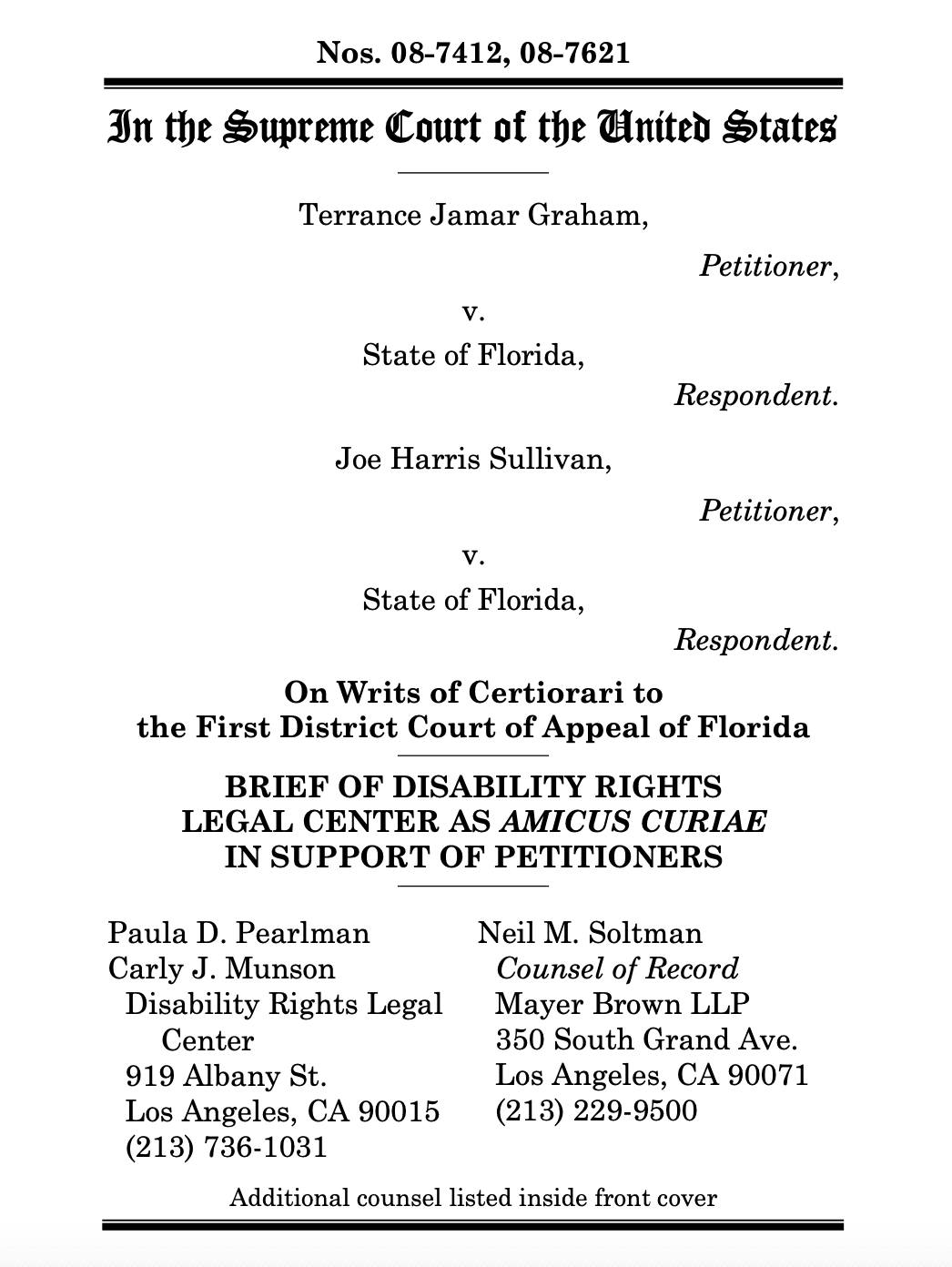
Summary of Argument
Sending children to prison for life without parole violates the Eighth Amendment because the practice is both cruel and unusual. It is grossly disproportionate to juvenile culpability, especially for nonhomicidal crimes like those at issue here. It is exceptionally unusual in modern society. And it is unusually cruel in light of the offender’s extreme youth, which more often than not is accompanied by a developmental disability.
A juvenile sentence of life without parole is as final and irrevocable as a juvenile death sentence. It condemns the juvenile to die in prison as surely as a death sentence; under both sentences the juvenile enters prison as a shackled teenager and decades later leaves in a pine box. The sole difference is that in life without parole the State awaits the death, rather than inflicts it. But a sentence of life without parole, just as certainly as a death sentence, forecloses any prospect of personal rehabilitation or societal reentry, and accordingly should be reserved for the very worst of offenders, those whose prior culpability is unquestionable and whose future rehabilitation inconceivable. The same considerations that led this Court to find juvenile executions unconstitutional in Roper v. Simmons, 543 U.S. 551 (2005), and Thompson v. Oklahoma, 487 U.S. 815 (1988), render the sentence here beyond the scope permitted by the Eighth Amendment.
Although children should be held accountable for their crimes, it does not follow that they should be punished identically to adults. Society has long distinguished among the rights, privileges, and burdens of adults and children. See Br. for Pet. in No. 08- 7621, App. A. Children are not miniature adults but rather are fundamentally different. They are more impulsive and less able to assess the risks and consequences of their actions. Moreover, because children are not neurologically complete, they are far less likely to be truly hardened criminals. Thus, children have a greater potential for rehabilitation. The constitutional limits on their punishment should reflect those inherent differences.
This brief explains how juveniles’ special susceptibility to emotional, psychological, and learning related disabilities affects the constitutional limits on their sentencing. Juveniles with serious emotional, psychiatric, and learning-related brain disabilities are significantly overrepresented in the incarcerated population. Juveniles suffering from serious disabilities, moreover, are likely to be particularly disadvantaged at every stage of their dealings with the criminal justice system. When their disabilities are unrecognized, as is often the case, these problems intensify. The cases before this Court are illustrative—both Graham (in No. 08-7412) and Sullivan (in No. 08-7621) have substantial disabilities, yet there is no evidence that their disabilities received any consideration at sentencing. And the disproportionality of a sentence of life without parole is especially pronounced for juveniles with disabilities, given the realities of long-term incarceration in facilities where harsh and austere conditions purposely tax the most hardened adult inmate; those same conditions aggravate existing juvenile deficits.
The high frequency of disabilities in juveniles involved in the criminal justice system further impedes the reliable assessment of juvenile culpability. Consequently, any irrevocable assessment of culpability is necessarily unsound and a lifelong sentence unconstitutionally excessive. The discredited notion that juveniles are merely adults in training and thus should be subject to the same punishment should be laid to rest. As this Court has recognized, juveniles, and especially juveniles with diminished capacities, present different issues of culpability entirely. Because the nature and the assessment of juvenile culpability make final and irrevocable judgments irrational, a sentence to a juvenile of life without parole for a non-homicidal offense exceeds constitutional limits in the same way as a death sentence for a juvenile who commits a homicide.